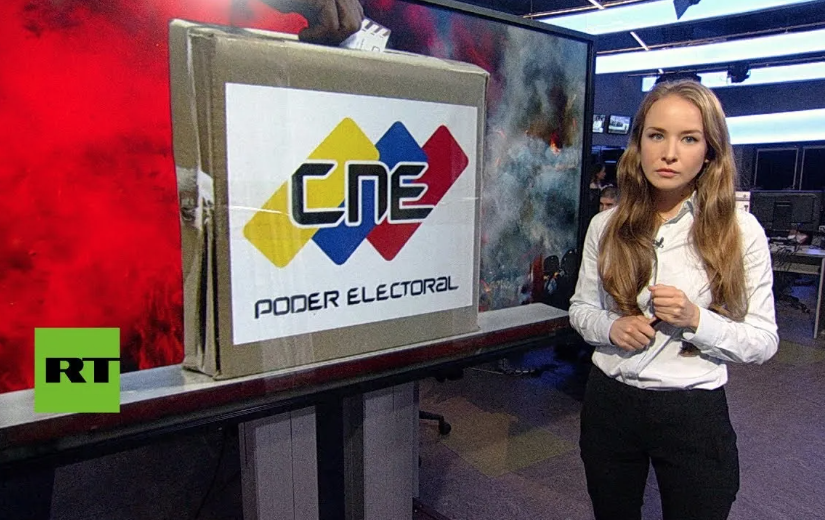With the beginning of Russian military operations in Ukraine, a significant number of journalists from different parts of the world working for Russian media such as RT (Russia Today) and Sputnik resigned from their positions, such as English correspondents Shadia Edwards-Dashti and Jonny Tickle and Russian editor-in-chief and activist Maria Boronova. In fact, unlike most of the Spanish-speaking journalists in those media who remained in their positions accepting the editorial line of the Russian government, Inna Afinogenova, one of the most popular YouTuber journalists in Spanish, resigned from RT due to her disagreement with the war and the propagandistic role of the media she worked for.
The collateral effects of conflicts in the Russian press are not new. In fact, in 2014 RT’s American anchor Liz Wahl resigned in mid-broadcast for similar reasons. However, the stance of these journalists contradicts Vladimir Putin’s claim that RT is “a fully independent broadcaster, despite being funded by the state.”
The creation of such communication projects is not something new in the world. Particularly, but not exclusively, non-democratic states have been known to employ these agencies politically and militarily with the aim of influencing foreign audiences, under slogans of alleged editorial independence.
If you are not with me, you are against me
Inna Afinogenova’s journalistic credibility was always questioned by traditional media in the region for working for RT. Already since 2017, the Russian journalist had been pointed out by the director of the Colombian magazine Semana, Vicky Davila, by the journalist of El Financiero from México, Fernando García, and even by the editor of the Spanish newspaper El País, David Alandete, who assured that the content of the media, being financed by the Russian State, favored its allies in the region such as Venezuela and all leaders or political parties categorized as leftist.
Moreover, critics repeatedly suggested, without sufficient evidence, that the Russian media’s publications were inorganic and that they were disseminated and made viral by an army of fake accounts. Therefore, their work was not journalistic, but a biased and highly politicized propaganda product.
However, the Russian journalist consistently maintained that the content she produced was not affected by the political objectives of the Russian government. In fact, she suggested several times that the discomfort she aroused in these Spanish-speaking media was due to the low quality of the journalism produced by these media, which evidently served the interests of the traditional Latin American political parties close to the interests of the United States.
In this sense, the comments section of their publications was a fervent space for interactions in which the majority of their believers congregated to be a beacon of light in the midst of the limited journalistic analysis of Latin American political and social phenomena.
With the escalation of the conflict in Ukraine, the Russian journalist’s analysis distanced herself from the editorial line of the Russian government and therefore of RT, since her disagreement with the actions of NATO and its allies as well as with those of the Russian State was evident.
Later, her content was censored and removed from the social network YouTube, like much of the pro-Russian content. But at the same time, the journalist suddenly disappeared from the Russian channel. In her reappearance, months later through a video on her own YouTube channel, the journalist explained that she had been absent, among others issues, due to her resignation from RT because of editorial differences. This caused her accounts to lose followers.
“Independent” bias
The example of Russian journalist Inna Afinogenova makes clear the high polarization existing among media outlets financed by non-democratic states such as RT or Iran’s HispanTV. These are media that use slogans such as “question more” or “show an alternative point of view” to offer a type of journalism close to the “truth”. However, these are information weapons that polarize and favor particular interests.
But this phenomenon is not exclusive to this type of regime. Western media in democratic countries also claim to be “independent” and in the end, their scope and depth are limited by private economic or political factors. Therefore, informing society is not their sole objective.
In this framework, if we assume that the Russian journalist’s decision to leave RT is not a media strategy to increase the number of followers on social networks, her resignation would be a lesson in journalistic integrity. Especially, at a time when in the digital era monetization and popularity predominate over informative coherence.
Finally, the Russian journalist’s case highlights the gap that exists between the editorial line of journalists working for the mainstream media and the media itself. Therefore, if what we are looking for is authentic independence, it seems clear that it will be easier to find it among the people who are engaged in journalism than among the media.
Translated from Spanish by Janaína Ruviaro da Silva











